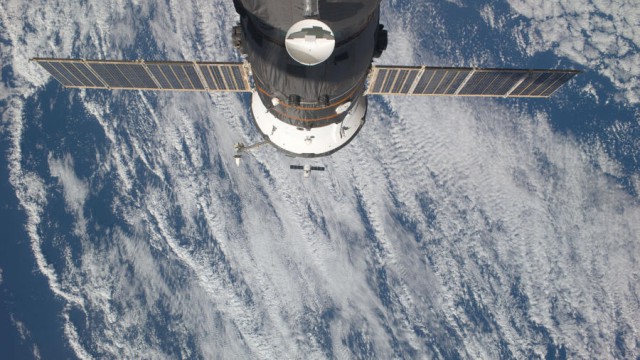
Elon Musk is renowned worldwide for his roles as co-founder of PayPal and CEO of green technology giants Solar City, SpaceX, and Tesla Motors. Now, the billionaire has crafted a feasible plan for supplying Internet to all areas of the world through the use of low Earth orbit satellites -- a project which he hopes will also act as a monetary springboard for an ambitious attempt at colonizing Mars. Of course, Musk has not forgotten his eco-friendly roots, and he is expanding on those with new technology for reducing environmental impact at home.
To grant Internet access to the entire globe, Musk wants to launch hundreds or possibly thousands of satellites. Since satellite Internet typically involves high latency and slower connections, due to the time a signal takes bounce between the Earth’s surface and a geostationary satellite, one of the major aims of Musk’s approach is to replace the current approach of using a small number of large, expensive satellites with an approach that instead uses hundreds of smaller, cheaper devices, expanding coverage and reducing data transmission times.
The modern satellite launch system, run by the United Launch Alliance and the Pentagon, had previously been a monopoly and would have made Musk’s idea impossible in the past. Nevertheless, Musk remained devoted to his plan and pushed for the right to launch satellites through his own system. Naturally, Musk was successful in his efforts, and the Pentagon now plans to invest up to $70 billion as part of a contract lasting more than a decade. Musk’s SpaceX project has also caught the attention of NASA, and in December 2014 SpaceX was selected, along with Boeing, to become part of the United States’ manned spaceflight program.
Musk’s proof of concept with SpaceX, which has already successfully launched multiple missions to the ISS, will allow him to join (and challenge) global Internet connectivity initiatives currently in the works from Google, Virgin Galactic, Hughesnet, and Facebook. Musk’s new system, which will send signals faster than standard fiber optics (thanks to the vacuum of space), is expected to provide speeds that surpass those of even modern broadband connections. As rural areas of developing nations go online thanks to Musk’s system, the global economy is bound to see a major increase in trade and innovation.
It may come as no surprise that Musk, with his intense focus on the future, already has big plans for the profits he will make with SpaceX’s satellite Internet project. According to Musk, funds from this project will provide the backbone for a Mars expedition and colony, while simultaneously helping create a transmission network between the red planet and our own for the time when humans are living on both. This is not the first time that a Mars community has been discussed, but this plan is far from science fiction. Plenty of people are already interested in making the trip to Mars, including Musk himself. Furthermore, the CEO believes that establishing the colony will be the biggest challenge, and that sustaining it after its successful launch will be relatively simple.
Despite his recent interest in space, Musk has not forgotten life on Earth. To support sustainability on our home planet, Musk has been busy developing numerous technologies to change how energy is delivered, stored and used, the most exciting of which is the Tesla home battery, Powerwall, which was announced a few days ago. With energy storage becoming part of what Tesla is offering, Musk is poised to bring an interconnected business model to fruition, allowing homeowners to gather their own clean solar energy (with help from SolarCity’s solar panel leasing options, of course), store it for later use when it’s most needed (or give some back to the grid), and charge their electric cars without any need for energy derived from carbon. Taken together, these developments could represent one of the biggest revolutions in energy that we’ve seen since the advent of internal combustion.
It’s obvious in the promise of these achievements, and in what he’s done so far, that Musk represents a new generation of industrialists who have glorious visions for our planet. Unlike mere dreamers, however, Musk also has the money and manpower to turn his ideas into reality. As life continues to unfold on Earth, these contributions of Musk can only enhance our quality of life while also prolonging our future here -- and in the coming years, we may also venture over the horizon toward other planets with his help.
Published under license from ITProPortal.com, a Net Communities Ltd Publication. All rights reserved.
Photo Credit: NASA’s Marshall Space Flight Centre’s Photostream

